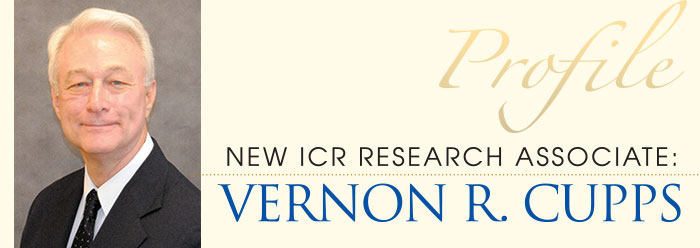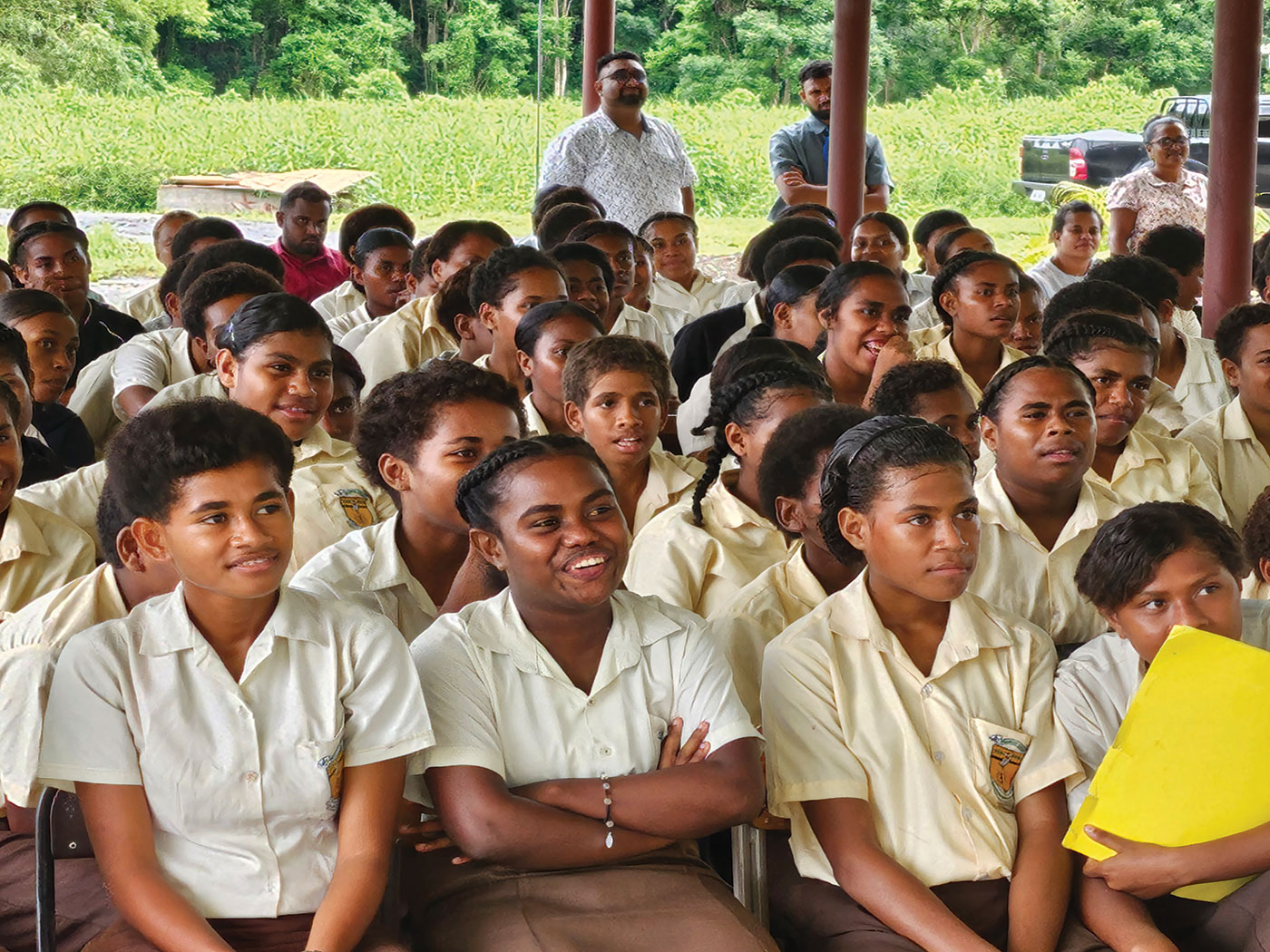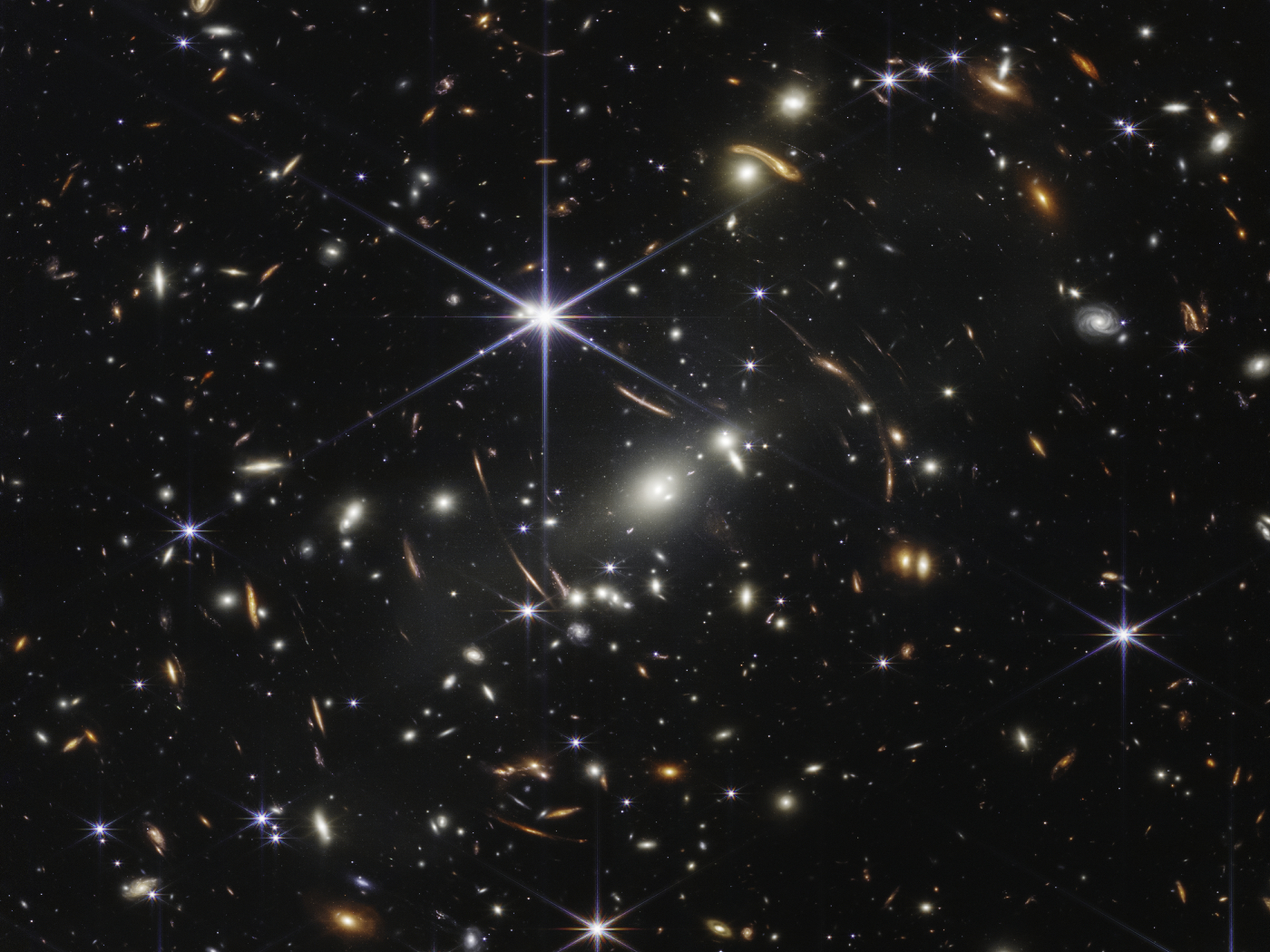Vernon R. Cupps believed that God created the universe and that Darwinian evolution was inconsistent with the Bible and science since he was young. But he didn’t give much consideration to a recent creation of the universe until about a decade ago.
“I had not given much thought to that proposition until the last 8-10 years when I read both Dr. [Henry] Morris’ and Hugh Ross’ books. At that point, it seemed self-evident to me that one cannot hold to the inerrancy of Scripture and also believe in an old earth and universe,” he said in a recent interview.
Dr. Cupps received his B.S. and M.S. in physics at the University of Missouri-Columbia and his Ph.D. in nuclear physics at Indiana University-Bloomington, where he worked at the Indiana University Cyclotron Facility. He later spent time at the Los Alamos National Laboratory before taking a position as radiation physicist at Fermi National Accelerator Laboratory, where he directed and supervised a radiochemical analysis laboratory from 1988 to 2011. He is a published researcher with 73 publications, 18 of which are in referred journals.
During his time with Fermilab, his assignments varied. “My primary job at Fermilab was to manage the operation of the Radioisotope Analysis Facility,” he said. “I also developed and helped implement the Air Monitoring Program, initiated material activation research projects, performed shielding calculations for the accelerator division, and implemented health physics and environmental monitoring projects.”
Many discoveries await nuclear physicists like himself. “After over a century of directed effort, we still do not fully understand the nature of the strong and weak nuclear forces,” he said. Also, several interesting science questions still bear further investigation, such as, “Is radioisotope dating a reliable way to ascertain the age of anything?” and “Can nuclear matter really be explained through the exchange of particles?”
Dr. Cupps recently became the first nuclear physicist to join the Institute for Creation Research as a research associate. “I had been familiar with ICR through published literature for approximately 12 years but was blessed to establish a personal connection only in the last two,” he said. When asked what he plans to focus on at ICR, he replied, “First, I will probably review the RATE1 report and attempt to answer the radioisotope dating questions which came out of that report. Second, I will look at radioisotope dating in general and the assumptions that go into the various dating methods. As an aside to this project, I will try to clarify what the scientific method is and what it is not as there seems to be a great deal of confusion even among ‘scientists’ on this. Third, I would like to investigate the feasibility of the radioactive decay constants not being constant. And finally, I would like to study more closely the nature of nuclear matter.”
When asked where he saw God shining the most in his study of physics, he said, “The structure of the nucleus, which constitutes most of the matter we know; i.e., how can a bunch of electrically repulsive particles like the proton be held together in such a small volume of space without blowing apart?”
Dr. Cupps also intends to continue his work in tutoring young people in math and physics, since he fostered a love of math and science at an early age. “I have loved mathematics, science, and history since I can remember, but I think I became more focused on physics while working on my science-fair projects in high school,” he said. “The Lord gave us our minds to use—to search out His truth.”
References
- RATE (Radioisotopes and the Age of the Earth) is the Institute for Creation Research’s eight-year research study. For more information, see www.icr.org/rate.













